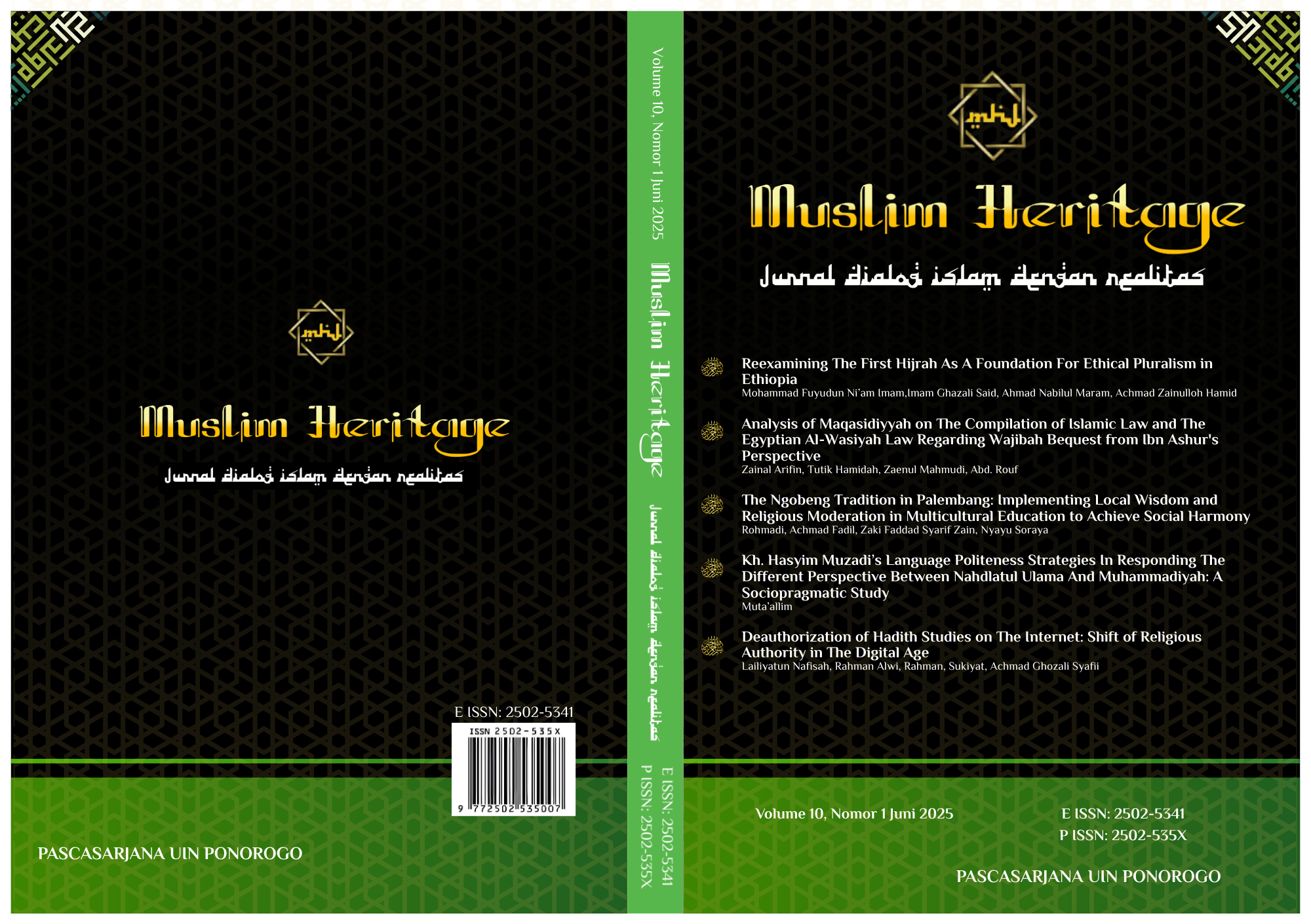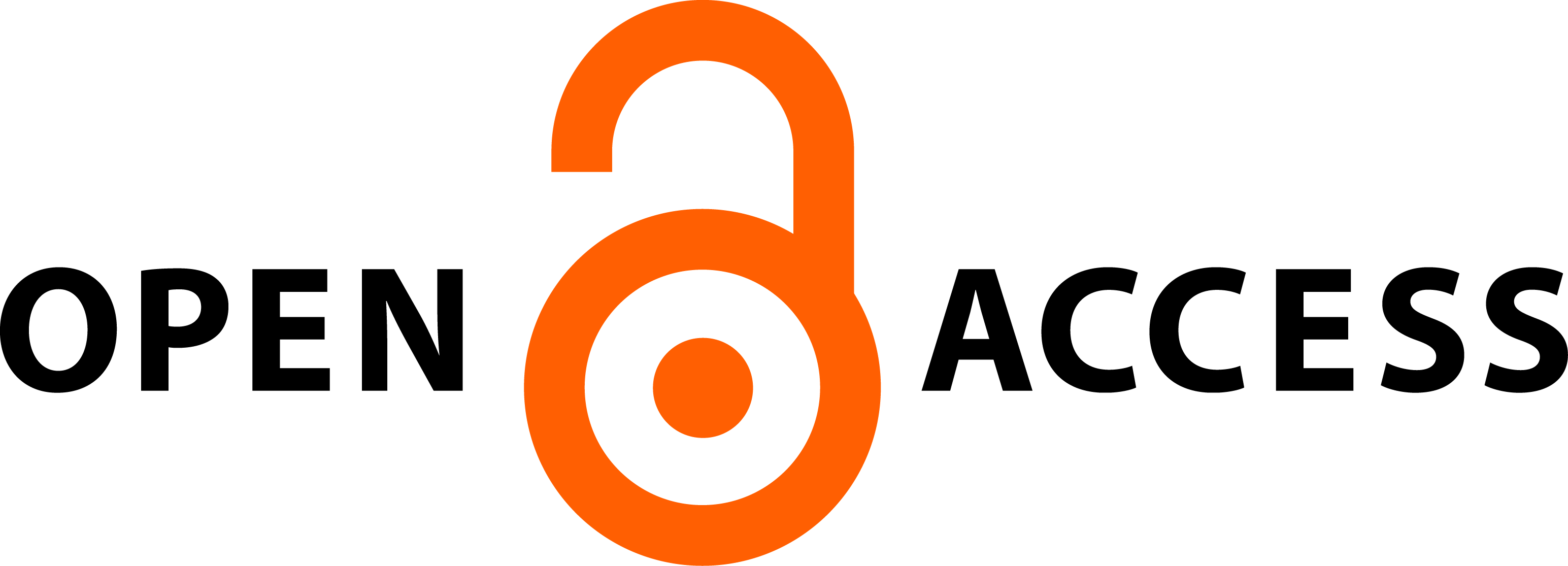Strategic Model for Strengthening Digital Literacy at UIN Ponorogo And UIN Kediri: Synergy of Curriculum and Educational Programs
DOI:
https://doi.org/10.21154/muslimheritage.v10i1.10891Abstract
Abstract
The rapid development of information requires synergy between the curriculum, the academic community, and institutional policies so that digital literacy is not only a technical skill, but also integrated with Islamic values, learning processes, and academic culture. This study aims to examine the strategy of strengthening digital literacy at the Ponorogo State Islamic University and Kediri through a collaborative approach to improve students' digital literacy competencies. Using qualitative descriptive methods with a comparative approach, through participatory observation, in-depth interviews, and documentation analysis. The results of the study show that the strategy of strengthening digital literacy in both institutions adopts the theory of Norhasni Zainal Abiddin, Gillian Hallam, and Maria Spante, which includes cognitive, emotional, and social aspects. UIN Ponorogo emphasizes strengthening the competence of reference management, technological understanding, and social interaction through social media promotion, as well as literacy class programs and special training for final year students. Meanwhile, UIN Kediri focuses on strengthening digital literacy strategies on improving scientific and popular article writing skills, as well as the use of the Maktabah Syamilah application for hadith search, which is realized through synergy between libraries and faculties. Both institutions showed significant progress in students' digital literacy, although they still faced challenges such as limited infrastructure and the absence of written institutional policies. As a recommendation, this study proposes the integration of digital literacy into the core curriculum, the implementation of periodic evaluations, adequate budget allocation, and the strengthening of infrastructure.
Abstrak
Pesatnya perkembangan informasi menuntut sinergi antara kurikulum, sivitas akademika, dan kebijakan institusi agar literasi digital tidak hanya menjadi keterampilan teknis, tetapi juga terintegrasi dengan nilai-nilai keislaman, proses pembelajaran, dan budaya akademik. Penelitian ini bertujuan mengkaji strategi penguatan literasi digital di Universitas Islam Negeri Ponorogo dan Kediri melalui pendekatan kolaboratif guna meningkatkan kompetensi literasi digital mahasiswa. Menggunakan metode deskriptif kualitatif dengan pendekatan komparatif, melalui observasi partisipatif, wawancara mendalam, dan analisis dokumentasi. Hasil penelitian menunjukkan bahwa strategi penguatan literasi digital di kedua institusi mengadopsi teori Norhasni Zainal Abiddin, Gillian Hallam, dan Maria Spante, yang mencakup aspek kognitif, emosional, dan sosial. UIN Ponorogo menitikberatkan penguatan kompetensi manajemen referensi, pemahaman teknologi, dan interaksi sosial melalui promosi media sosial, serta program kelas literasi dan pelatihan khusus bagi mahasiswa tingkat akhir. Sementara itu, UIN Kediri memfokuskan strategi penguatan literasi digital pada peningkatan keterampilan penulisan artikel ilmiah dan populer, serta pemanfaatan aplikasi Maktabah Syamilah untuk penelusuran hadis, yang diwujudkan melalui sinergi antara perpustakaan dan fakultas. Kedua institusi menunjukkan perkembangan signifikan dalam literasi digital mahasiswa, meskipun masih menghadapi tantangan seperti keterbatasan infrastruktur dan belum adanya kebijakan institusional yang tertulis. Sebagai rekomendasi, penelitian ini mengusulkan integrasi literasi digital ke dalam kurikulum inti, pelaksanaan evaluasi berkala, alokasi anggaran yang memadai, serta penguatan infrastruktur.
Downloads
Published
Issue
Section
License

This work is licensed under a Creative Commons Attribution-NonCommercial 4.0 International License.
Requirements to be met by the author as follows:
- Author storing copyright and grant the journal right of first publication manuscripts simultaneously with licensed under the Creative Commons Attribution License that allows others to share the work with a statement of the work's authorship and initial publication in this journal.
- Authors can enter into the preparation of additional contractual separately for non-exclusive distribution of a rich version of the journal issue (eg:post it to an institutional repository or publish it in a book), with the recognition of initial publication in this journal.
- Authors are allowed and encouraged to post their work online (eg, in institutional repositories or on their website) prior to and during the submission process, because it can lead to productive exchanges, as well as citations earlier and more severe than published works. (see The Effect of Open Access).

















